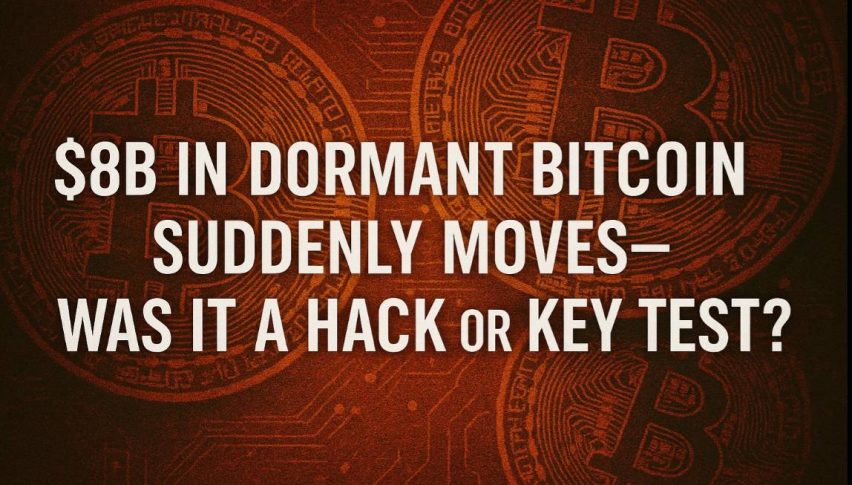$8B in Dormant Bitcoin Suddenly Moves—Was It a Hack or a Key Test?
Coinbase director flags $8B in dormant Bitcoin moving as potential hack. Unusual BCH test raises questions around ownership and intent.

Quick overview
- Over $8 billion in dormant Bitcoin has moved, sparking speculation in the crypto community about the nature of the transactions.
- Coinbase's Conor Grogan suggests the movement may not be voluntary, pointing to a test transaction in Bitcoin Cash that preceded the Bitcoin transfers.
- Theories about the transactions range from a classic key test to concerns over quantum decryption, highlighting fears about cryptographic security.
- Regardless of the cause, the incident underscores the importance of securely storing private keys and raises questions about legacy wallet vulnerabilities.
Over $8 billion in dormant Bitcoin has moved, and the crypto community is going wild. Conor Grogan, a director at Coinbase, thinks it might not be voluntary activity.
Grogan pointed out a BCH (Bitcoin Cash) test transaction just before the Bitcoin transactions started. In a thread on X (formerly Twitter), Grogan noted one BCH wallet tied to the Bitcoin cluster sent a small transaction. He thinks this might have been a test to verify the wallet’s private key, choosing BCH because it’s less monitored by blockchain tracking services.
“Why touch only $2 million in BCH, then wait an hour to move BTC, but never return to sweep the remaining BCH?” Grogan asked. “It just doesn’t add up if you’re the rightful owner.”
Hack or Heir?
The theory gained traction and many in the community are calling it “classic key test check behavior”. But not everyone is convinced.
- One user said the private keys were cracked from an old wallet.dat file.
- Another pointed out the slow movement of the coins, saying it doesn’t match typical hack behavior.
- Some are floating the idea of quantum decryption as a possibility—an idea that while unlikely, shows how worried people are about cryptographic security.
But Grogan said there was no interaction with exchange wallets, which means the actors behind the transactions are deliberately avoiding traceability—a red flag.
What It Means for Bitcoin Security
If the funds were hacked, it would be one of the largest unauthorized recoveries in crypto history. But even if it’s a keyholder finally reclaiming lost funds, it’s a reminder to store your keys securely—especially for legacy wallets.
The incident also brings up:
- Legacy wallet vulnerabilities
- Blockchain forensics
- Quantum computing’s threat to current encryption
So far, no BTC has moved to exchanges, so either the owner is being cautious or there’s a delay in liquidation. But whether it’s a long lost wealth reunion or a stealthy heist, the crypto world is watching.
For now, Bitcoin is at $108,000 and seems unfazed. But the questions raised by this transaction will be echoing for a long time.
- Check out our free forex signals
- Follow the top economic events on FX Leaders economic calendar
- Trade better, discover more Forex Trading Strategies
- Open a FREE Trading Account
- Read our latest reviews on: Avatrade, Exness, HFM and XM


